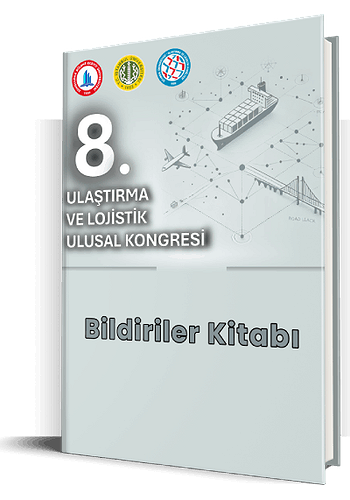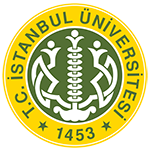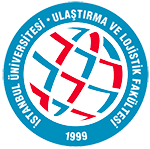
Ulaştırma ve Lojistik Kongreleri
- Türkçe
- Özet
- 2024
Son Aşama Teslimatta Scooter Kullanımı Üzerine Bir Araştırma
Serdar Alnıpak
Doç. Dr., Nişantaşı Üniversitesi, İstanbul, Türkiye
Yavuz Toraman
Öğr. Gör., Nişantaşı Üniversitesi, İstanbul, Türkiye
Teknolojik gelişmeler imalat, tarım, turizm, madencilik, sağlık, bankacılık, eğitim, perakende, lojistik gibi bir çok sektörü olumlu anlamda etkilemiştir. Bu bağlamda taşımacılık ve teslimat faaliyetlerinde kullanılan araçlar çeşitlendirilmiştir. Belirtilen değişim teslimat operasyonlarında otonom araç, drone, elektrikli araç, kargo otomat, elektrikli bisiklet ve scooter gibi inovatif alternatiflerin aktif olarak kullanılmasından veya kullanımına yönelik pilot çalışmaların yapılmasından da anlaşılmaktadır. Belirtilen alternatiflerin kullanımı çevresel, ekonomik ve sosyal sürdürülebilirlik bağlamında önem taşımaktadır. Şüphesizdir ki özellikle COVID-19 salgınının etkisiyle perakende mağazalarda gerçekleştirilen alışveriş faaliyetleri çevrim içi kanallara kaymıştır. Bu durum perakendecilerin çevrim içi kanallardan yararlanmasına yol açarken iş yapış modellerine değiştirmiş, müşteri taleplerine cevap verebilmek için inovatif ve alternatif teslimat yöntemlerini kullanmasına neden olmuştur. Scooter ile teslimat da bu yöntemlerden biridir. Scooter, iki tekerli tek kişinin sürüş yaptığı ve küçük dosya ve paketlerin teslimatında kullanılan araçtır. Bu bilgiler ışığında ilgili çalışmada son aşama teslimatında nihai tüketicilerin kullanım niyetlerini etkileyen faktörler Teknoloji Kabul Modeli (TKM) yardımıyla araştırılmıştır. Bu bağlamda TKM değişkenleri aracı, teslimat riski ve çevresel endişe değişkenleri ise bağımsız değişkenler olarak belirlenmiştir. Yüzyüze 386 katılımcı ile yapılan anket çalışmasından elde edilen veriler analiz edilerek ulaşılan bulgular yorumlanmış ve geleceğe yönelik öngörüler sunulmuştur
Anahtar Kelimeler: Kullanıcı Kabulü, Son Aşama Teslimat, Scooter, Lojistik
A Study on the Use of Scooter in Last Mile Delivery
Technological advancements have had a beneficial impact on a multitude of sectors, including manufacturing, agriculture, tourism, mining, healthcare, banking, education, retail and logistics. In this context, the vehicles used in the transportation and delivery of goods and services have diversified. This transformation is substantiated by the growing prevalence of cutting-edge solutions such as autonomous vehicles, drones, electric vehicles, cargo vending machines, electric bicycles and scooters, which are actively employed in delivery operations or undergoing pilot studies for their potential integration. The utilisation of these alternatives is of significant importance with regard to environmental, economic and social sustainability. It is beyond doubt that, particularly in the wake of the global pandemic, consumer spending has undergone a significant shift towards online channels. While this situation has enabled retailers to benefit from online channels, it has also necessitated a transformation of their business models and the utilisation of innovative and alternative delivery methods in order to respond to customer demands. The use of scooter for the delivery of goods is an example of such a method. A scooter is defined as a two-wheeled vehicle driven by a single person and used for the delivery of small files and packages. In light of the aforementioned information, an investigation was conducted into the factors affecting the usage intention of final consumers in the final stage of delivery, utilising the Technology Acceptance Model (TAM). In this context, TQM variables were identified as mediators, while delivery risk and environmental concern variables were determined as independent variables. The data obtained from the face-to-face survey, conducted with 386 participants, were subjected to analysis, the findings were interpreted, and future predictions were presented
Keywords: User Acceptance, Logistics, Last Mile Delivery, Scooter

VIII. Ulaştırma ve Lojistik Ulusal Kongresi Bildiriler Kitabı
E-ISBN: 978-605-07-1781-5
Sayfa: 70-71

Bu çalışma, kullanan kişilere orjinal çalışmadan alıntı yaptıkları sürece, çalışmayı dağıtma, değiştirme ve üzerine çalışma hakkı tanıyan Attribution 4.0 International (CC BY 4.0) lisansı ile lisanslanmıştır.
İletişim
İstanbul Üniversitesi Ulaştırma ve Lojistik Fakültesi
İ.Ü. Avcılar Kampüsü 34320 Avcılar/İstanbul
ulk@istanbul.edu.tr
+ 90 (212) 440 00 00 - 19200


